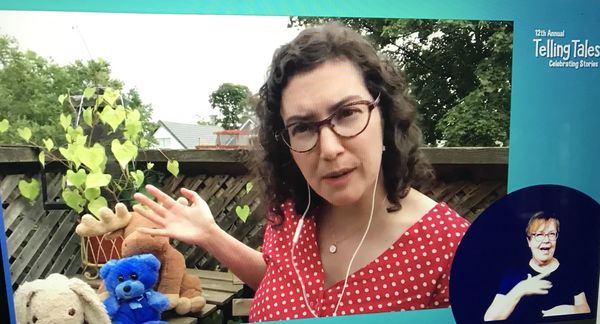6 Tips for Effective School Visits
By Vikki VanSickle
With September fast approaching, it’s time for children’s authors to start thinking about school presentations. School visits can be a great way to connect with your audience, promote your work, and supplement your income. You don’t have to be an extrovert to deliver a successful school visit, the key is to create a presentation that best showcases you and your work. Here are 6 steps to consider when taking on school visits.
Define Your Audience
Set yourself up for success by deciding who you want to present to. You don’t need to be all things to all people. Are you more comfortable with a small group in a library setting or are you energized by a full gymnasium? Figure out the age range, number of students, and length of presentation that makes you the most comfortable and then stick to it. If you’re just starting out, I suggest smaller groups of kids in the same grade. Most school presentations run 40-60 minutes. For kindergarten and grade one, I’d suggest 30 minutes.
Set Expectations with the Organizer
Be very clear (and get in writing) the date, time, number of students and your presentation rate. Yes, you should charge. I am a firm believer that time and expertise is valuable, also many authors rely on presentation fees as part of their income. Offering free presentations is damaging to the ecosystem at large. The Ontario Writers in the Schools program offers $300 per visit, that is a good base level to charge. Let the organizer know if you have tech requirements and be as specific as possible about hardware, adaptors, etc. It’s best to assume that kids have not read your book, but if you’re doing a Q&A, ask the organizer to let the students know so they can come prepared with questions.
Content
Decide if you are creating a presentation that is specifically tailored to a single book (content presentation), or if you’re doing a more general presentation about you as an author (author presentation). A single book/series content presentation allows you to do a deep dive on the story, the research, and is especially useful if your book has a curriculum connection. An author presentation is best if you have a large, general audience or a wide range of work. This is a good format to share personal anecdotes or talk about the process of writing. In either case, make sure enjoyment or comprehension of your event is not contingent on the kids being intimately familiar with you or your work, especially if you’re presenting a novel to older students. Think about your presentation as a teaser for the book. The ideal scenario is your presentation is so riveting the kids are desperate to get their hands on a copy.
Your CanLit News
Subscribe to Open Book’s newsletter to get local book events, literary content, writing tips, and more in your inbox
Visual Aids
I am a firm believer in visual aids. It’s very common to have an accompanying slide show. You can use images of your cover, the research process, inspiration, or pictures that illustrate an anecdote. For younger presentations I also bring physical props that suit my story. For my Teddy Bear of the Year presentations, I bring my own teddy bears and introduce them to the kids.
Be Authentic
What do you offer that another author does not? I’ve seen authors pull out a ukulele, draw on demand, use a yo-yo and show traditional costumes in their presentations. Think about what would make you the most comfortable. Do you like to share personal stories to illustrate a point? Do you have lots of photos or interesting facts from your research process? Can you draw on demand? Are you a former camp counselor with fun, simple games up your sleeve you could use as an icebreaker? Do you have objects that pertain to your story that you can bring for a show & tell?
Q&A
Tell the organizer in advance that you will be doing a Q&A and ask them to have the students come prepared with questions. I also have three questions of my own that I will use if the group seems shy, or there is a lull in the conversation. It can take some time for the Q&A to warm up, but once kids get comfortable the questions start coming in fast and furious.
The views expressed by Open Book columnists are those held by the authors and do not necessarily reflect the views of Open Book.
Vikki VanSickle is the author of a number of acclaimed novels for children including P.S. Tell No One, Words That Start With B, Summer Days, Starry Nights, and the 2018 Red Maple award-winning The Winnowing. She has also written the picture books If I Had a Gryphon, Teddy Bear of the Year, and Anonymouse. Vikki started her career as an independent bookseller and spent 12 years working in children's publishing. A devoted member of the Canadian children's book world, she curates and presents regular book segments at CTV Your Morning and balances her writing with arts education for all ages.




